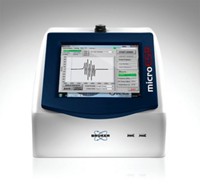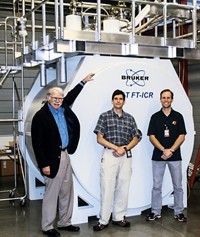Advertisement
Grab your lab coat. Let's get started
Welcome!
Welcome!
Create an account below to get 6 C&EN articles per month, receive newsletters and more - all free.
It seems this is your first time logging in online. Please enter the following information to continue.
As an ACS member you automatically get access to this site. All we need is few more details to create your reading experience.
Not you? Sign in with a different account.
Not you? Sign in with a different account.
ERROR 1
ERROR 1
ERROR 2
ERROR 2
ERROR 2
ERROR 2
ERROR 2
Password and Confirm password must match.
If you have an ACS member number, please enter it here so we can link this account to your membership. (optional)
ERROR 2
ACS values your privacy. By submitting your information, you are gaining access to C&EN and subscribing to our weekly newsletter. We use the information you provide to make your reading experience better, and we will never sell your data to third party members.
Analytical Chemistry
Inside Instrumentation
Technology and Business News for the Laboratory World
by Celia H. Arnaud and Ann M. Thayer
March 13, 2006
| A version of this story appeared in
Volume 84, Issue 11
Firms make deals in life sciences area
Varian and Digilab have made acquisitions to expand their life science offerings. Through a $16 million deal to buy IonSpec Corp., Varian has added Fourier transform mass spectrometry (FTMS) technology for life science applications to its existing MS, magnetic resonance, and FT-infrared product lines. Varian may make additional payments if FTMS product sales reach certain targets. Separately, Digilab, a developer of molecular spectroscopy systems, has acquired the bioinformatics firm BioVisioN GmbH. The acquisition gives Digilab analytical peptide profiling and discovery technology from BioVisioN called Peptidomics. In late 2004, Digilab sold its FTIR instrumentation business to Varian.
Molecular Devices debuts detection tools
Molecular Devices has unveiled a newdetection system and new reagents for life science and drug discovery applications. The ImageXpressULTRA is a high-speed, laser-scanning confocal imager for cell-based screening assays. The bench-top system can incorporate as many as four solid-state lasers and is available with a robotic plate-handling option. The company is also offering new reagents for its IMAP assays that screen for kinases, phosphatases, and phosphodiesterases. The reagents include labels for time-resolved fluorescence-resonance-energy transfer (TR-FRET) detection. TR-FRET detection is more sensitive than previously available fluorescence polarization detection and reduces the amount of enzyme required and the overall cost of the assay.
JEOL launchesnew microscopes
Jeol USA has introduced highresolution tungsten scanning electron microscopes. Its JSM-6390/6490 series consists of five systems that feature multiple live-image displays, streamlined graphical interfaces, and improved low-kilovolt operation. They allow simultaneous observation of up to three different images (secondary electron, backscattered electron, and digital camera) as well as on-screen measurements. The company says new electron optics enhance both general-purpose imaging and analysis at the nanometer scale.
Waters, Thermo add to proteomics offerings
Waters and Thermo Electron have announced additions to their lineups of proteomics products. Waters has released an updated version of its ProteinLynx Global SERVER software. A new quantitation module allows data to be generated with any of the commercially available labeling technologies, including SILAC, ICAT, and iTRAQ. It also incorporates a new algorithm to identify proteins from experiments using elevated collision energy in a quadrupole time-of-flight hybrid mass spectrometer. Thermo's BioWorks software has similarly been extended to work with all major protein quantitation techniques. In addition, Thermo has introduced a new approach to protein quantitation called Pulsed-Q Dissociation, a fragmentation technique that eliminates the low-mass cutoff for ion-trap mass spectrometers.
Biotage names new executive
Biotage has named torben jorgensenchief executive officer effective April 27, succeeding current CEO Jeff Bork, who will remain on the company's board. For the past four years, Jorgensen has been CEO of Affibody, a protein-engineering firm. Biotage now is looking to further integrate its businesses and focus on organic growth. In 2003, the Swedish firm was formed from the merger of Biotage, Personal Chemistry, and Pyrosequencing. Last year, it acquired Argonaut Technologies and Separtis. Biotage's sales of discovery chemistry and biosystem products were $54 million in 2005, up 17% over that of 2004. Although it reported a net loss of $5 million, this loss was about half the figure reported in 2004.
Bruker Daltonics partners with German cell culture collection
Bruker Daltonics and the German Collection of Microorganisms & Cell Cultures (DSMZ) will collaborate to identify and classify microorganisms according to peptide and protein profiles measured by MALDI-TOF mass spectrometry. DSMZ stores approximately14,000 cultures from 6,900 species of microorganisms, including archaea, bacteria, yeasts, and fungi. It will use Bruker's CLINPROT BioTyper system to generate the mass spectra. A product of the collaboration will be a comprehensive database for applications such as microbiological classification, disease research, environmental analysis, food safety, and water quality. "This cooperation is a major step toward our goal of not only applying mass spectrometry in expert core facilities but also making it available as a robust tool in routine biological analysis," says Wolfgang Pusch, Bruker's director of clinical proteomics and biomarker analysis.






Join the conversation
Contact the reporter
Submit a Letter to the Editor for publication
Engage with us on Twitter